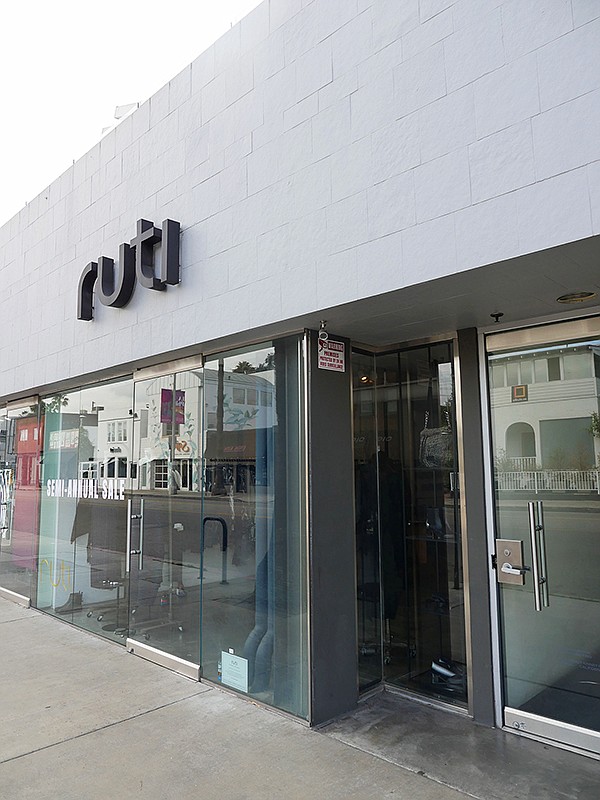TECHNOLOGY
Ruti To Create AI Stylist
Retail marketing and back-office tasks are increasingly informed by big data and machine learning. Boutique retailers will soon find out if artificial intelligence can make savvy styling recommendations for shoppers.
Ruti, headquartered in the San Francisco Bay Area town of Belmont, Calif., recently announced that it had raised $6 million in a Series A funding led by Viola Ventures, based in Herzliya, Israel. The investment will fund new retail locations. It also will bankroll the development of a proprietary AI platform that will develop recommendations for individual customers. The platform may be available at eight bricks-and-mortar Ruti locations as well as on its digital channel, ruti.com.
The platform will mix an individual customer’s fashion likes and dislikes, as well as information based on past purchases and items a customer has tried on. It will use facial recognition as well as customer relations–management technology, said Sharon Segev, Ruti’s chief technology officer.
“This funding will be used to bring the high-touch experience of our in-store experience to our online store. The traditional e-commerce approach might work for high-frequency, low-cost items, but when it comes to unique products and truly personal customer relationships, we knew we had to develop a better approach,” Segev said when the investment was recently announced.
Daniel Cohen, a general partner in Viola, said that the investment in Ruti would help it grow in a retail market that is increasingly powered by omni-channel shopping, which mixes digital and bricks-and-mortar shopping.
“The future of strong retail brands will be a personalized shopping experience that is consistent, both online and offline. In today’s world, the offline shopping experience is lagging dramatically compared with e-commerce,” he said in a blog last month. “In fact, in most stores today, the consumer is not identified until they reach the cashier at the end of the purchase funnel. Ruti has built a proprietary CRM with built-in facial recognition in order to create a truly personalized in-store experience.”
The mix of fashion design and AI is something that companies are experimenting with, said Judah Phillips, founder of the machine-learning-as-a-service firm Squark, based in Burlington, Mass. It can be considered as hyper-personalization marketing, he said.
“Instead of walking into a store and randomly searching racks, you can have a clerk suggest through AI predictions what styles and items you might like,” Phillips said. This information can also be sent to a customer through his or her device. “Machine learning and AI personalization are something that more and more companies will be doing in the future.”
Currently, academics and companies with deep pockets do research into the intersection of fashion and machine-learning systems called generative adversarial networking.
Phillips said that a fashion generative adversarial networking system (GANS) could mix a consumer’s fashion likes, along with what styles are trending on social media. The machine-learning network then could possibly create a new design.
“You could create new versions of shoes, dresses or shirts that have never been seen before,” Phillips explained. “They will be blends of things you like and current styles.”
In the near future, consumers could be able to work with machine systems to create these designs and then send the designs to manufacturers to produce. Phillips recently started a company, Generatable.com, that will provide GANS and other AI techniques to design products and marketing for apparel and footwear.






















